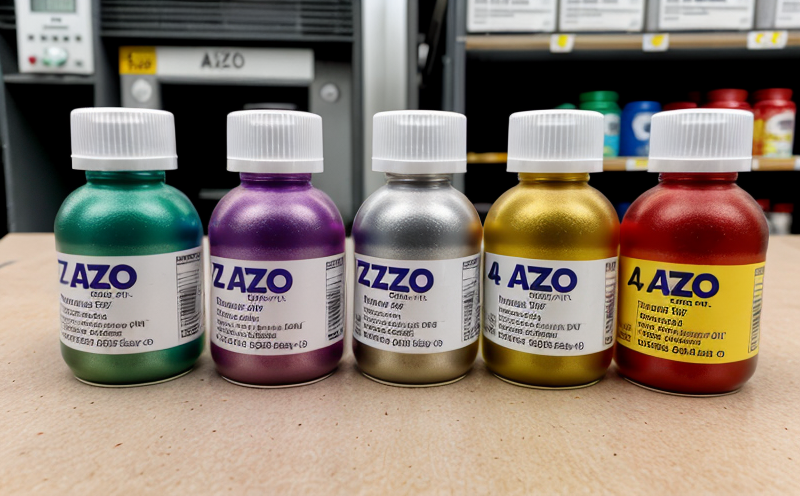ASTM D3472 Detection of pentachlorophenol and related phenolic compounds
The ASTM D3472 standard test method is widely recognized as a critical tool for the detection and quantification of pentachlorophenol (PCP) and its related phenolic compounds, particularly in water samples. This service ensures compliance with stringent environmental regulations by identifying potential contaminants that may pose health risks to humans, wildlife, and ecosystems.
PCP is a highly toxic compound traditionally used as an industrial wood preservative but has been largely phased out due to its severe environmental impact. Despite this, it remains present in water sources worldwide, necessitating robust monitoring protocols. The ASTM D3472 method provides a precise means of detecting PCP and related compounds using high-performance liquid chromatography (HPLC) coupled with mass spectrometry (MS).
The test procedure involves several key steps: sample collection, filtration to remove particulates, dilution if necessary, and injection into the HPLC-MS system. The sensitivity of this method allows for detection limits as low as 0.1 µg/L, making it suitable for both routine monitoring and forensic analysis.
The significance of ASTM D3472 lies in its role in safeguarding public health by preventing the spread of harmful contaminants. Compliance with this standard is essential for industries involved in water treatment, environmental remediation, and regulatory compliance.
Our laboratory adheres strictly to the ASTM D3472 protocol, ensuring accurate and reliable results that are critical for informed decision-making. This service plays a vital role in maintaining the integrity of water resources, supporting sustainable development initiatives, and fostering a safer environment.
Scope and Methodology
| Parameter | Description |
|---|---|
| Pentachlorophenol (PCP) | Detection of PCP and related phenolic compounds in water samples. |
| HPLC-MS/MS System | Instrumentation used for the separation and quantification of target analytes. |
| Sample Collection | Collection of representative water samples from various sources. |
| Filtration | Removal of particulates to ensure accurate analysis. |
| Dilution | Adjustment of sample concentration for optimal HPLC-MS/MS performance. |
| Injection | Introduction of the sample into the chromatography system. |
| Data Analysis | Interpretation of chromatograms and mass spectra to determine concentrations. |
The ASTM D3472 method requires a series of preparatory steps to ensure accurate results. Sample collection is the first critical step, followed by filtration to remove particulates that could interfere with the analysis. Dilution may be necessary for samples with high concentrations to prevent instrument overload. After injection into the HPLC-MS/MS system, data are analyzed using advanced software packages to identify and quantify PCP and related compounds.
The accuracy of ASTM D3472 results is enhanced by rigorous quality control measures that include method validation, inter-laboratory comparisons, and proficiency testing. These protocols ensure that the laboratory maintains the highest standards in analytical chemistry.
Quality and Reliability Assurance
- Method Validation: Rigorous validation against international standards to ensure precision and accuracy.
- Inter-Laboratory Comparisons: Participation in regular inter-laboratory studies to confirm consistency of results.
- Proficiency Testing: Continuous participation in proficiency testing programs recognized by regulatory bodies.
- Data Traceability: Ensuring that all data can be traced back to original samples and analysis protocols.
- Certified Personnel: Trained personnel with expertise in the use of HPLC-MS/MS instrumentation.
- Quality Control Samples: Regular inclusion of quality control samples to monitor analytical performance.
- Instrument Calibration: Frequent calibration of instruments using certified standards.
The reliability of ASTM D3472 results is paramount for stakeholders, including environmental regulators, industrial operators, and public health officials. By adhering to these stringent QA protocols, we provide clients with confidence in the integrity and accuracy of their test data.
Competitive Advantage and Market Impact
The ability to accurately detect pentachlorophenol and related phenolic compounds is crucial for maintaining compliance with international environmental regulations. Our laboratory's proficiency in ASTM D3472 ensures that clients are at the forefront of regulatory standards, providing a competitive edge in an increasingly stringent market environment.
By offering this service, we support industries such as water treatment, environmental remediation, and chemical manufacturing in meeting their regulatory obligations. This not only enhances corporate social responsibility but also fosters trust with stakeholders, including customers, investors, and the public.
The demand for reliable heavy metals testing is growing globally, driven by increased awareness of environmental issues and stricter regulations. Our expertise in ASTM D3472 helps clients stay ahead of these trends, ensuring they are prepared for future challenges and opportunities.
In addition to compliance support, our service also facilitates research and development efforts by providing precise data on contaminant levels. This information is invaluable for optimizing processes, improving product safety, and reducing environmental impact.





